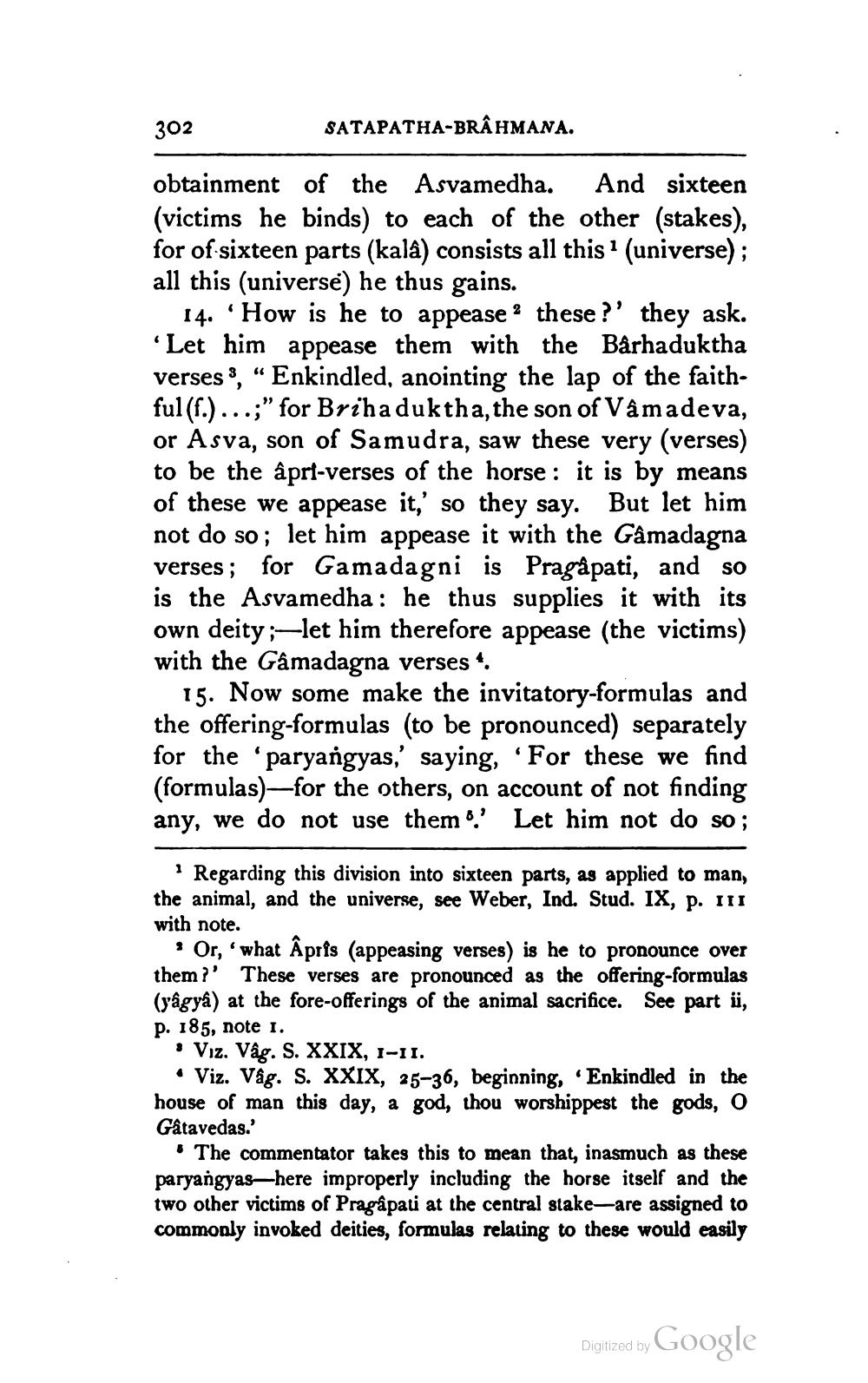________________
302
SATAPATHA-BRAHMANA.
obtainment of the
Asvamedha. And sixteen
1
(victims he binds) to each of the other (stakes), for of sixteen parts (kalâ) consists all this 1 (universe); all this (universe) he thus gains.
"
14. How is he to appease these?' they ask. 'Let him appease them with the Bârhaduktha verses, "Enkindled, anointing the lap of the faithful (f.)...;" for Brihaduktha, the son of Vâmadeva, or Asva, son of Samudra, saw these very (verses) to be the âpri-verses of the horse: it is by means of these we appease it,' so they say. But let him not do so; let him appease it with the Gâmadagna verses; for Gamadagni is Pragâpati, and so is the Asvamedha: he thus supplies it with its own deity; let him therefore appease (the victims) with the Gâmadagna verses*.
15. Now some make the invitatory-formulas and the offering-formulas (to be pronounced) separately for the 'paryangyas,' saying, 'For these we find (formulas) for the others, on account of not finding any, we do not use them. Let him not do so;
2
1 Regarding this division into sixteen parts, as applied to man, the animal, and the universe, see Weber, Ind. Stud. IX, p. III with note.
Or, 'what Âprfs (appeasing verses) is he to pronounce over them?' These verses are pronounced as the offering-formulas (yâgyâ) at the fore-offerings of the animal sacrifice. See part ii, p. 185, note 1.
Viz. Vâg. S. XXIX, 1-11.
Viz. Vâg. S. XXIX, 25-36, beginning, Enkindled in the house of man this day, a god, thou worshippest the gods, O Gâtavedas.'
The commentator takes this to mean that, inasmuch as these paryangyas-here improperly including the horse itself and the two other victims of Pragâpati at the central stake-are assigned to commonly invoked deities, formulas relating to these would easily
Digitized by
Google




